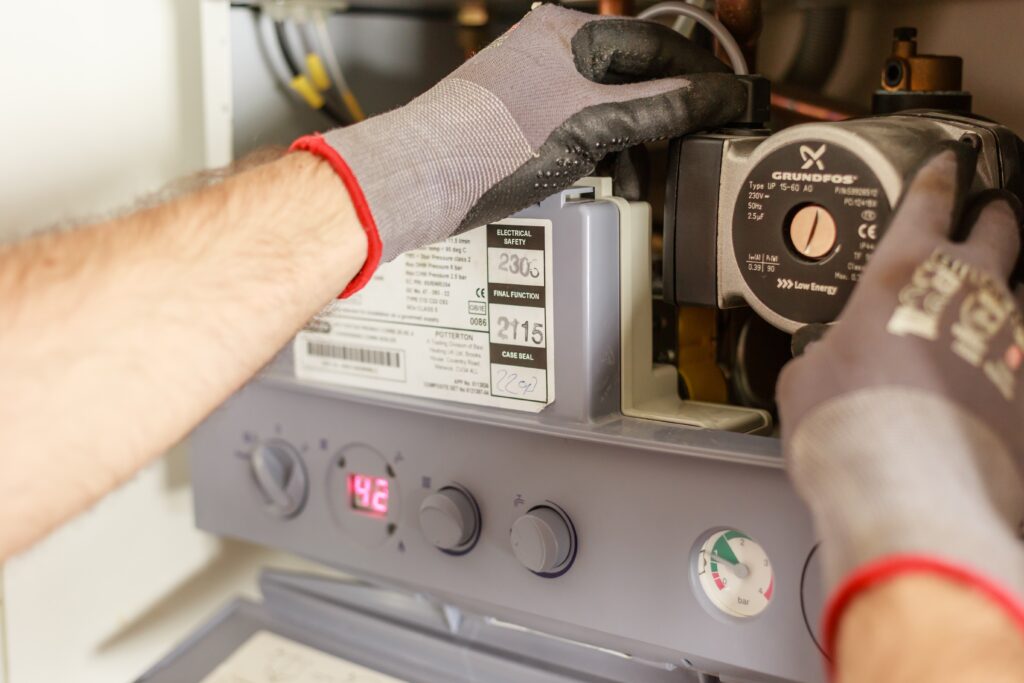
Water is one of our most precious resources, yet millions of gallons are wasted each day in homes due to outdated fixtures, leaks, and inefficient plumbing practices. As concerns about sustainability and utility costs grow, homeowners are looking for ways to conserve water without sacrificing comfort or functionality. That’s where plumbers come in—not just as repair professionals, but as key players in building water-efficient homes.
From installing modern fixtures to designing smarter systems, plumbers play a central role in helping homeowners save water, reduce costs, and support environmental conservation. Here’s how they do it.
1. Installing Water-Efficient Fixtures
One of the most effective ways plumbers help reduce household water consumption is by recommending and installing water-saving fixtures. These include:
Low-Flow Toilets
Older toilets use up to 6 gallons of water per flush, whereas modern low-flow or dual-flush models use as little as 1.28 gallons. A plumber can easily swap out outdated models and ensure they’re installed properly.
Water-Saving Showerheads
High-efficiency showerheads reduce water use to around 1.5 gallons per minute (compared to the 2.5-gallon standard), while still maintaining strong pressure and a satisfying shower experience.
Faucet Aerators
A small, inexpensive fix with a big impact. Aerators reduce the flow rate from your faucets without affecting performance. Plumbers often include these in water-efficiency upgrades.
Efficient Dishwashers and Washing Machines
While not installed directly by plumbers, these appliances often require plumbing adjustments. Plumbers help homeowners adapt connections for new high-efficiency appliances that save both water and energy.
2. Detecting and Repairing Leaks
Leaky pipes, dripping faucets, and running toilets are more than minor annoyances—they’re major sources of water waste. According to the EPA, the average household loses over 10,000 gallons of water per year due to leaks.
Plumbers use specialized tools like acoustic sensors, moisture meters, and thermal imaging to detect hidden leaks behind walls or underground. Once located, they can make precise repairs that not only prevent structural damage but also drastically reduce water loss.
3. Upgrading Old Plumbing Systems
In older homes, outdated plumbing systems can lead to water waste and inefficiency. Galvanized steel pipes, for example, are prone to corrosion and buildup, which restrict water flow and increase pressure—making leaks and bursts more likely.
Professional plumbers can:
- Replace old piping with more efficient, durable materials like PEX or copper.
- Design more efficient plumbing layouts to reduce water travel distance (and thus waste).
- Install pressure-reducing valves to prevent excess water use due to high pressure.
These upgrades not only make homes more efficient but also improve water quality and extend the life of the plumbing system.
4. Installing Greywater and Rainwater Harvesting Systems
Innovative plumbing solutions like greywater recycling and rainwater harvesting systems are becoming more popular in eco-conscious homes. These systems reduce dependency on municipal water for tasks like irrigation, toilet flushing, or washing vehicles.
- Greywater Systems: Reuse water from sinks, showers, and washing machines for landscaping or flushing.
- Rainwater Harvesting: Collect rain from rooftops and store it for use in non-potable applications.
While these systems require careful design and adherence to local building codes, experienced plumbers can plan and install them safely and effectively.
5. Water Heater Optimization
Plumbers can also help reduce water waste related to heating. If you’ve ever waited minutes for hot water to reach your faucet or shower, you’ve experienced unnecessary water loss.
Solutions include:
- Tankless water heaters, which heat water on demand rather than keeping a tank full at all times.
- Recirculation pumps, which keep hot water moving through the pipes so it’s instantly available.
- Insulated piping, to prevent heat loss and reduce the time it takes to get hot water.
By recommending and installing the right system, plumbers help you save both water and energy.
6. Educating Homeowners
Perhaps one of the most underrated ways plumbers promote water efficiency is through education. A good plumber doesn’t just fix the problem—they explain it. They help homeowners understand how their systems work, where water is being wasted, and what habits or upgrades can improve efficiency.
This might include:
- Advising on how often to check for leaks
- Offering suggestions for water-saving appliances
- Providing maintenance schedules to keep systems running efficiently
Plumbers often serve as advisors in remodeling projects too, helping homeowners make choices that are both efficient and compliant with modern codes.
7. Ensuring Code Compliance and Efficiency Standards
Plumbers are familiar with local building codes and environmental regulations that mandate water efficiency in new constructions and major renovations. They make sure installations meet or exceed these standards—protecting homeowners from fines and future retrofitting costs.
Many plumbers are also trained to work with products certified by the EPA WaterSense program, which guarantees high efficiency and performance.
Final Thoughts: Plumbers as Water-Saving Experts
Plumbers are no longer just emergency responders for leaky pipes or broken fixtures—they are key partners in creating water-efficient, sustainable homes. With a deep understanding of plumbing systems, building codes, and the latest water-saving technologies, they’re equipped to guide homeowners toward smarter, greener solutions.
Whether you’re building a new home, remodeling your bathroom, or just trying to reduce your water bill, partnering with a knowledgeable plumber is one of the most effective steps you can take. Water efficiency starts behind the walls, under the floors, and in the hands of the experts who make it all flow smoothly.
